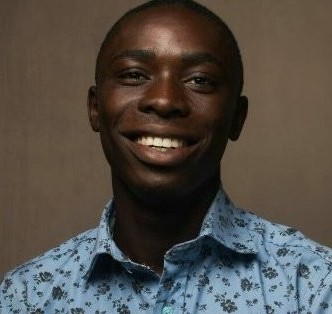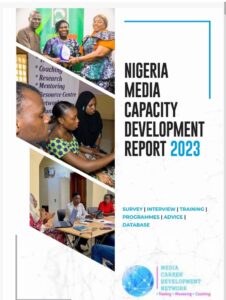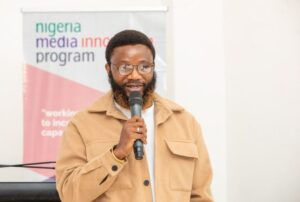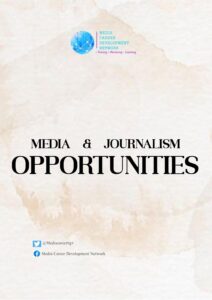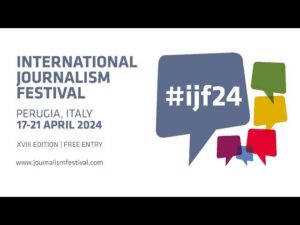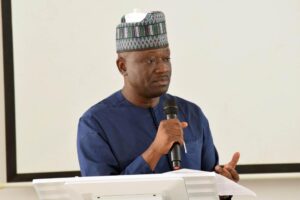President of Union of Campus Journalists, the University of Ilorin (UNILORIN), Adedimeji Quayyim Abdul-Hafeez reports on insights from a freelance Journalism Workshop organized by award-winning journalist and storyteller, Ope Adetayo.
I was extremely glad when I received the news of my selection for the Ope Adetayo Journalism workshop held at the University of Ilorin campus on the 16th and 17th of July, 2021. Adetayo had been someone I admired, right from his Commonwealth Essay Shortlist nomination days, and I had the privilege to experience his brilliance at a Journalism Workshop (organized by the Cable Newspaper Journalism Foundation and Open Society Initiative West Africa). I was so glad that he was giving back to the journo-creative community, and supporting journalists to thrive in freelance journalism.
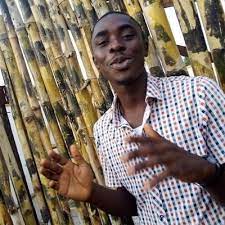 A student of English, former Writing Fellow at African Liberty, and an award-winning journalist and storyteller, Adetayo’s works have been published in national, continental, and global news and literary platforms, including Foreign Policy, Aljazeera, TRT World, Guardian UK, Sahelien, The Continent, Mail and Guardian, Africa is a Country, African Arguments, Guardian Nigeria, Sahara Reporters, and the Punch Newspapers.
A student of English, former Writing Fellow at African Liberty, and an award-winning journalist and storyteller, Adetayo’s works have been published in national, continental, and global news and literary platforms, including Foreign Policy, Aljazeera, TRT World, Guardian UK, Sahelien, The Continent, Mail and Guardian, Africa is a Country, African Arguments, Guardian Nigeria, Sahara Reporters, and the Punch Newspapers.
His sterling profile from stints in different realms of the creative writing process, founding Fragbits (a creative non-fiction literary publishing platform) and being a full-fledged freelance journalist heightened my expectations about the workshop and expectedly I learnt a lot from the various sessions.
On the first day, Francis Salako, an equally-brilliant writer, poet, and freelance journalist (published on Aljazeera, Sahelien, More Branches, Jalada Africa and Brittle Paper), facilitated the session on “Sourcing for Story Ideas”, and emphasized the importance of finding relevant angles in story ideas. He also noted that reading, passion, engaging in conversations, and developing a seventh sense in developing and exploring perspectives are all important for the journalism craft and that journos should channel these skills in the course perfecting their story ideas. Salako said he learnt from foremost journalist Abang Mercy attending Magistrate Court sittings to have insights into the plights of persons at the grassroots, thereby fueling ideas that can be worked on as stories.
In the session on “The Art of Interviewing”, Salako emphasized the virtues of being truthful to the story subjects, researching the themes of the story before conducting interviews and making the subjects at ease while speaking with them. He also noted that the ability to read the room is important so that the subject would not have the feeling that the story is being extracted from him/her, adding that respecting the story subjects, exercising care to not intrude deeply into personal lives and building a strong network community are important to ensure that the interviews are conducted with ease.
Facilitating the session on Pitching, Adetayo said it is important that a pitch answers the following critical questions: what is happening, who is it happening to, and where the story theme is happening. He also added that a pitch must be clear, brief, concise, contain a word count, when the story can be delivered, has a perspective it wishes to address, and must appeal to global audiences (for international media outlets). He admonished that budding journos should ensure that their pitches position them as the best persons to tell the stories and that the theme resonates with the objectives and goals of the media organization pitched to.
For the second day, Adetayo facilitated a session on “Storytelling in Journalism”, deriving inferences from Gabriel Gracía Márquez’s book “News of a Kidnapping” (detailing Pablo Escobar’s journalists’ kidnappings in Columbia), Rest of World’s “Beyond Silicon Valley: The six cities building the future of the global tech industry”, Ope Adetayo’s “Inside Nigeria’s backstreet abortion clinics” and “Nigeria’s bus drivers battle thugs..” (both published on Aljazeera) and Bloomberg Businessweek’s “Japan’s Prisons are a Haven for Elderly Persons”. He emphasized the need for freelance journalists to harvest details, detailing the five crucial items to be looked out for to ensure the story is complete: character, plot arc, colour, setting, and mode.
The story he also said, should paint a picture to the readership, to make it more relatable and impactful.
In his closing remarks, Adetayo enjoined the participants to stay true to the course and abide by the ethics of journalism. The themes discussed at the workshop further boosted my interest in freelance journalism and would go a long way in embedding me into the realities of mainstream journalism. Ope Adetayo exudes brilliance, I tell you.
